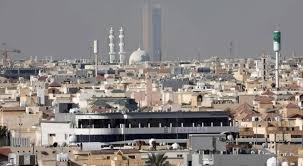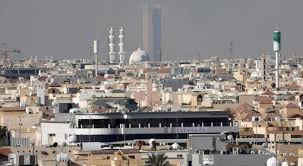Kuwait new traffic law 2025 comes into effect with major reforms aimed at improving road safety, reducing traffic violations, and regulating expatriate vehicle ownership. This law introduces higher fines for common violations, restricts expatriates to owning only one vehicle, and enforces jail sentences for serious offenses such as running red lights. Kuwait new traffic law 2025 represents a crucial step toward safer roads and more disciplined driving habits across the country.
A Historic Discovery in the Partitioned Zone
The discovery was made by Wafra Joint Operations (WJO) in the North Wafra Wara-Burgan field, located approximately five kilometers north of the existing Wafra field. This marks the first major oil find in the Partitioned Zone since 2020, underscoring the continued potential of this shared area.
Details of the Discovery
The newly discovered Wara reservoir has shown promising results, with initial tests indicating a production rate exceeding 500 barrels per day. The oil extracted from this reservoir is characterized by a gravity of 26 to 27 API, classifying it as light crude oil. This quality is expected to be highly sought after in global markets.
Significance of the Partitioned Zone
Established in 1922 to resolve territorial disputes between Saudi Arabia and Kuwait, the Partitioned Zone spans approximately 5,770 square kilometers. Despite its division in 1970, both nations have continued to share its resources equitably. The recent discovery highlights the enduring value of this collaborative arrangement.
Economic and Strategic Implications
The new oil find is anticipated to bolster the economies of both Saudi Arabia and Kuwait, enhancing their positions as leading global energy suppliers. It also underscores the importance of continued cooperation in managing shared resources, ensuring mutual benefits and regional stability.
Strengthening Energy Cooperation Between Saudi Arabia and Kuwait
The recent oil discovery in the Partitioned Zone reflects the deepening energy cooperation between Saudi Arabia and Kuwait. Both nations have a long history of collaboration in managing shared resources, and this find is a testament to their ongoing commitment to maintaining stability and transparency in the oil sector. Joint exploration projects like this demonstrate how neighboring countries can work together to maximize economic benefits while avoiding conflicts over natural resources.

Boost to Regional Energy Security
This new oil discovery is also crucial for regional energy security. With global oil demand continuing to fluctuate, the addition of high-quality crude from the Wara reservoir strengthens the Middle East’s role as a reliable supplier. Experts suggest that the discovery could contribute to stabilizing oil prices in the long term by increasing available reserves. Furthermore, it provides both countries with greater flexibility to manage production quotas under agreements with international energy organizations.
Technological Advancements Driving Discoveries
Modern technology played a key role in identifying the Wara reservoir. Advanced seismic imaging, reservoir modeling, and drilling techniques allowed exploration teams to detect oil pockets that were previously undetectable. This emphasizes the importance of investment in research and development within the oil and gas sector. Both Saudi Arabia and Kuwait are likely to continue leveraging such technologies to explore untapped areas in the Partitioned Zone and other regions.
Positive Outlook for Investment and Jobs
The discovery is expected to generate significant economic opportunities. New drilling and extraction projects will require skilled labor, attracting investment and creating job opportunities in both countries. Ancillary industries, such as logistics, equipment supply, and maintenance services, are also set to benefit. This contributes not only to the energy sector but also to broader economic growth, supporting local communities and reinforcing the importance of energy as a driver of development.
Environmental Responsibility and Sustainable Practices
Alongside economic and strategic benefits, both nations have highlighted their commitment to sustainable practices. Efforts are being made to minimize environmental impact during exploration and production. This includes using cleaner extraction methods, monitoring emissions, and implementing safety protocols. By balancing development with environmental stewardship, Saudi Arabia and Kuwait aim to ensure the Partitioned Zone remains productive for decades to come.
Future Prospects
Looking ahead, both countries are expected to invest in further exploration and development within the Partitioned Zone. This discovery not only contributes to their energy portfolios but also sets a precedent for future collaborative efforts in the region.
Do follow us: Instagram
Read More: Invest Qatar QFZ Conclude Asian Roadshow with 7 Key Wins



